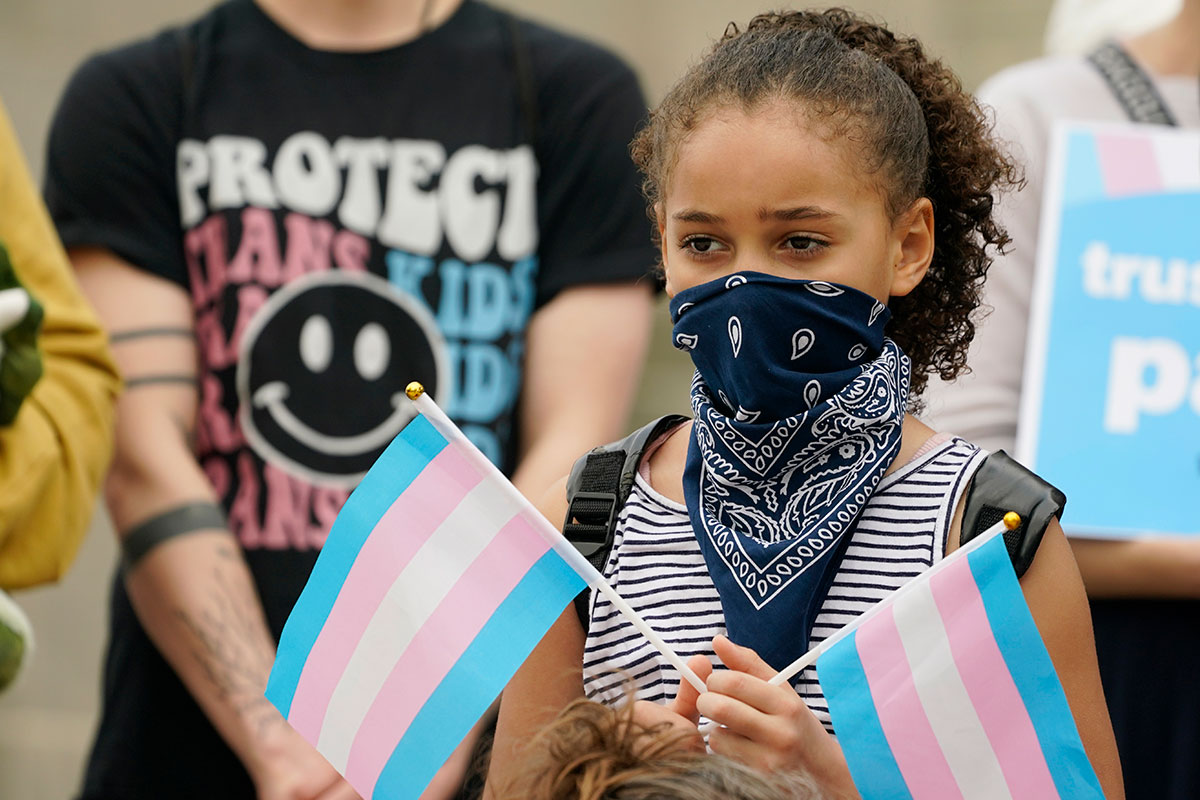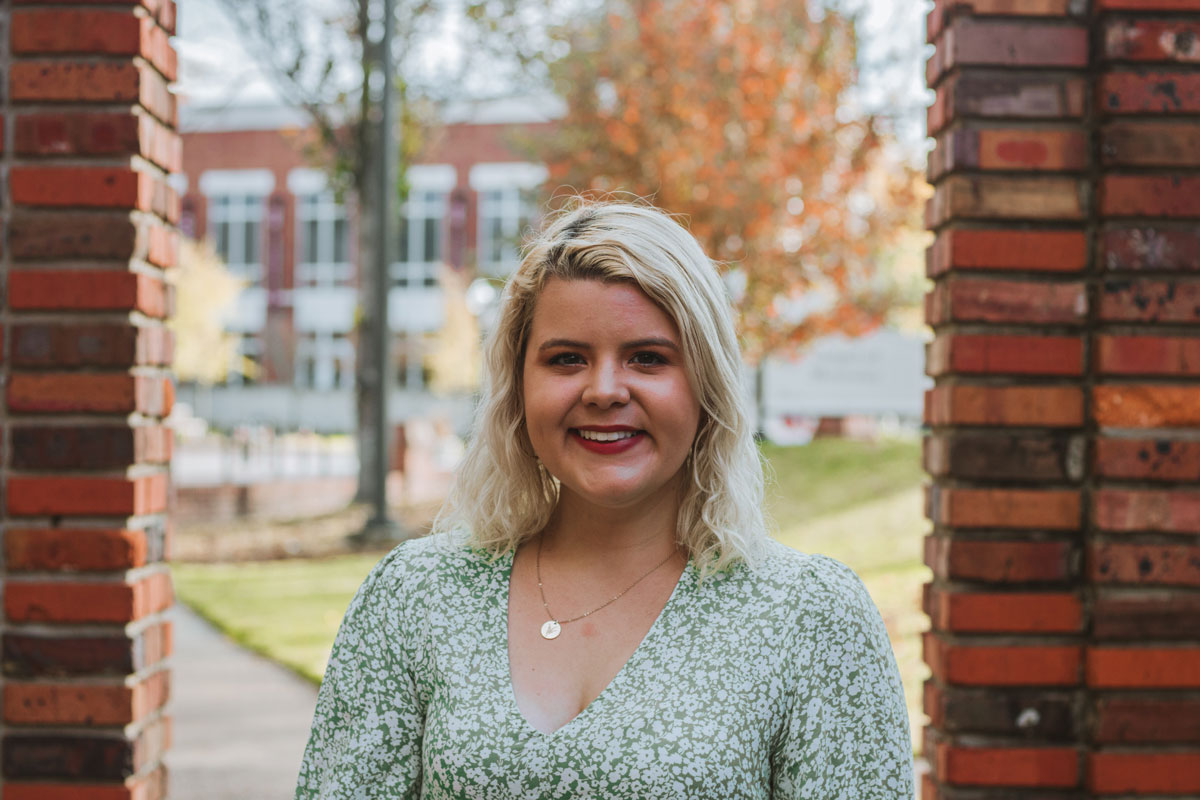When Paul Mora first visited the University of Mississippi’s on-campus clinic about two years ago, University Health Services initially assigned Mora to a man physician who did not to seem to understand why HIV prevention with PrEP was necessary for gay and bisexual men.
“(The doctor) wouldn’t look me in the eyes; he would say, ‘I’m not providing you PrEP because I don’t know what that is,’ Like bulls—, you know what it is. There’s commercials for it on TV. You know,” he told the Mississippi Free Press.
Mora, who is a Ph.D. student studying history with a focus on gender at UM and the president of the campus’ OUTGrads LGBTQ+ organization, eventually switched to a woman practitioner at UHS who understood his health-care needs.
He said his experience was not an anomaly: This is a reality many LGBTQ+ folks seeking health care in Mississippi face. And, after the University of Mississippi Medical Center decided to close its LGBTQ+ clinic in Jackson, residents say these problems will only worsen.
‘Responding In Fear’
UMMC is shutting down the TEAM (Trustworthy, Evidence-Based, Affirming and Multidisciplinary) Clinic on June 30 after lawmakers criticized it for providing gender-affirming care to its patients in a recent Performance Evaluation and Expenditure Review report.
On June 1, the first day of Pride Month, Molly Minta from Mississippi Today broke the story of the clinic’s sudden closure.
The TEAM Clinic served 298 LGBTQ+ patients in its first three years of operation, the May 9, 2023, legislative committee report said. It provided adults and minors with routine check-ups, gender-affirming medicine, nonsurgical gender-transition services, HIV/sexually transmitted infection screening and treatment, behavioral health services, and surgical referrals for adults.
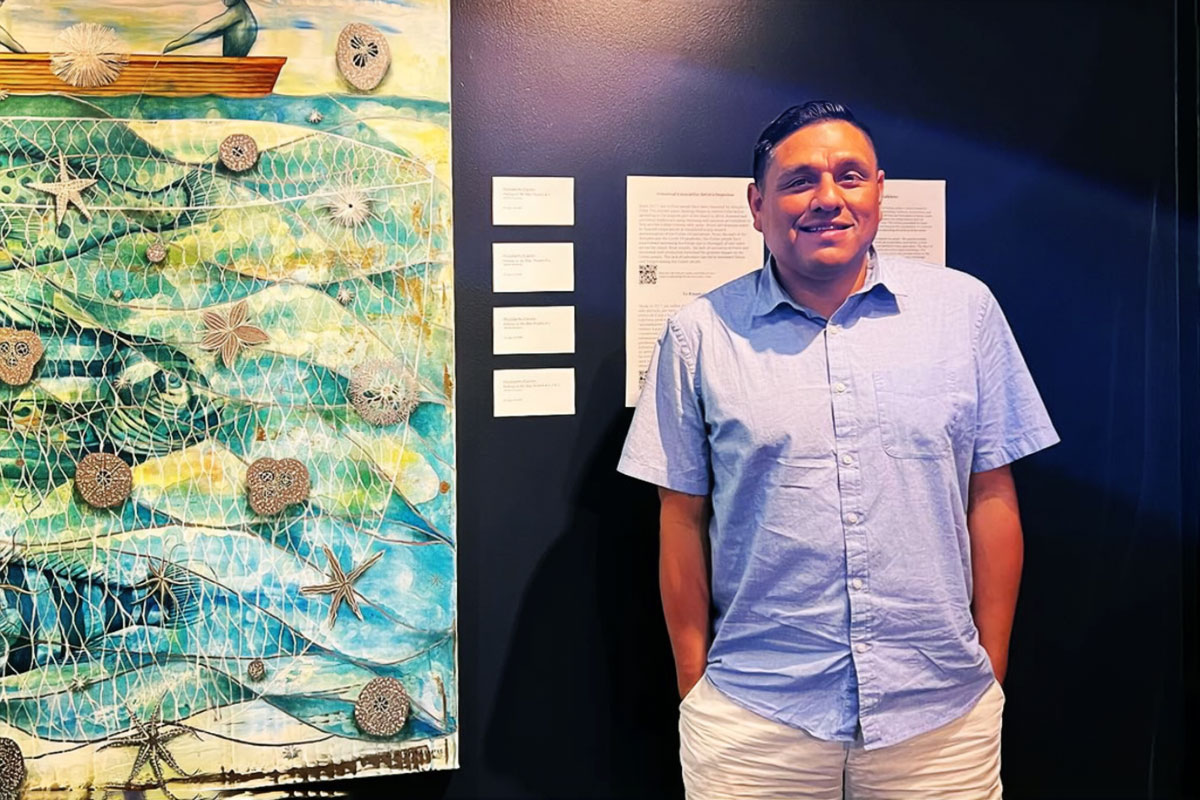
According to the Performance Evaluation and Expenditure Review report, the clinic stopped serving minors in October 2022 ahead of the Legislature passing and Gov. Tate Reeves signing the REAP Act into law on Feb. 28, 2023. That law banned standard gender-affirming care for transgender minors, such as hormone therapy and puberty blockers.
Of the 298 patients the TEAM Clinic saw since its founding in 2019, 22% were minors who the clinic had provided care to before October, according to the PEER report. Minors only received services with approval from their parents or guardians.
Alex Mills, co-director of the Center for Gender and Minority Health that guides the TEAM clinic, told Mississippi Today earlier this month that he was not involved with the decision to close the facility.
“This is an institution responding in fear, not responding in reason,” said the professor of pharmacy. “It’s demoralizing and dehumanizing to the LGBTQ community.”
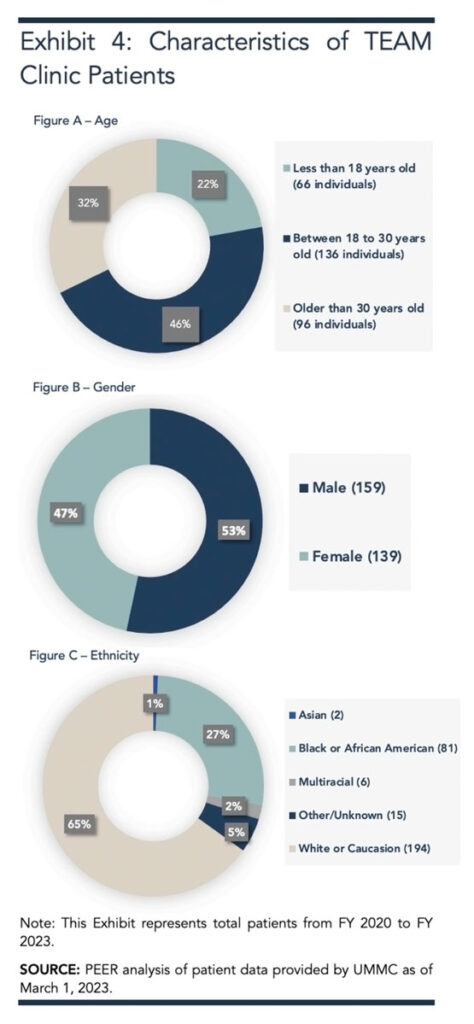
TEAM was the first health-care facility in the state that specifically served LGBTQ+ patients when it opened in September 2019, offering patient-centered and holistic health care in a safe, judgment-free environment. The clinic not only provided care LGBTQ+ focused care and gender-affirming medicine but also primary care.
In an October 2019 press release announcing the clinic, UMMC highlighted Wes Comas, a gay patient from Jackson who wanted “primary care for his hypertension and everyday ills delivered in a welcoming environment.”
“I’ve been out since 1986, but many times, I wouldn’t let my provider know it,” the patient said at the time. “I was afraid it would affect the care I received.”
The TEAM clinic had limited hours of operation: 1:30 p.m. to 4:30 p.m. on the first Friday of the month. Eighteen UMMC support staff worked part-time to see patients and help with clinic operations.
UMMC’s patients generated TEAM’s income from insurance, Medicaid and self-pay. The Empower U Women’s Foundation, Manning Family Fund and LGBTQ Fund of Mississippi provided the clinic with $82,2002 in grants over three fiscal years, the PEER report noted.
The PEER report suggested consideration of “integrating services provided by the TEAM Clinic back into UMMC’s regular care setting, similar to the way it did with services provided to minors, and (to) offer optional LGBTQ training courses to all staff and students.”
However, lawmakers did not order UMMC to shut down the clinic.
The Mississippi Free Press contacted Mills for an interview but did not receive a response. When the Mississippi Free Press emailed Associate Vice Chancellor for Clinical Affairs Dr. Alan Jones for an interview, UMMC Director of Communications Patrice Guilfoyle responded, “We have no comment for the article.”
‘A Norm I’m Not Willing To Accept’
University of Mississippi LGBTQIA+ Alumni Chapter President Caroline Haas said people should not forget the dark history of medical care for LGBTQ+ patients.
“(LGBTQ+) medical care throughout history has not been great,” Haas told the Mississippi Free Press. “We went from a time where it was considered a disease to be LGBTQ, or you were treated with electrotherapy. … There’s a history of physicians and medical professionals dealing with these sorts of patients in really really traumatic ways.”
Because of this, OUTGrads President Mora said narrowing the health-care options for LGBTQ+ Mississippians “is going to hurt” queer residents.
“And I don’t know when leaders or public health officials are going to recognize this … Whose kid is it going to take for lawmakers to start to understand why clinics like this are important?” Mora said. “They’re messing around with us, but when it’s someone in their community that’s close to them, you know, maybe something will change.”
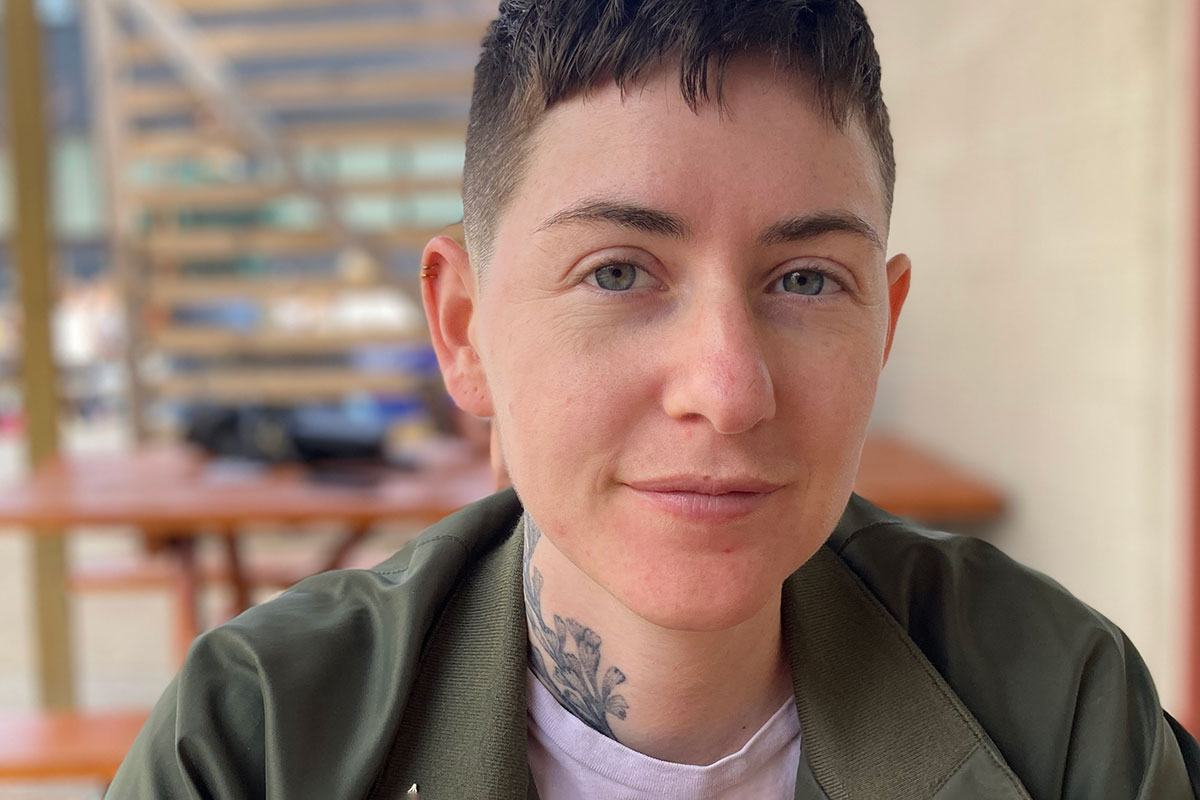
Al Favilla, a graduate student studying poetry at UM, has faced uncomfortable encounters at the doctor’s office since they identify as transgender and non-binary. They present themself as masculine but have to go to the women’s clinic to get a pap smear and regular checkups.
“I can already anticipate the sort of astonishment, confusion, revulsion that I’m going to face in the sense that ‘You don’t need this because you’re trans or, you know, your gender identity is just eclipsed by your medical needs,’” Favilla said of traditional women’s clinics.
“It’s very strange. Knowing that the TEAM Clinic would’ve been an option, even if it was a little bit of a drive … that’s where I would’ve gone. There wouldn’t have even been a question. I wouldn’t have messed around with, you know, the local options in Oxford,” added Favilla, who is the treasurer of OUTGrads.
Despite the clinic’s sudden closure, Mora and Favilla both emphasized at separate times during the interview together that “it’s not shocking that this is happening.” Mora, a native Californian, said he sometimes questions why he moved to Mississippi, where lawmakers are trying to limit LGBTQ+ rights.
“I think in a state like Mississippi … because this doesn’t feel shocking, completely shocking, that this is (considered) a norm. And it’s just a norm I’m not willing to accept, not for the next three to four years of my program,” Mora said. “I have options, you know. I’m a veteran, I can go to the LGBTQ clinic in Memphis, but it’s not convenient, so I use what’s around me. But other people don’t have that option. So, because I have another option, I can speak up.”
‘Where’s The University Leadership?’
UM’s LGBTQIA+ Alumni Chapter sent a press release on June 5 listing three demands for Chancellor Glenn Boyce, UMMC directors and Mississippi lawmakers. Chapter members called the clinic’s shutdown “a slap in the face to the LBGTQ+ community.”
First, the alumni urged UMMC to reinstate the clinic “immediately” so its staff “may resume their full operation without further disruptions.” Second, they asked UMMC to provide current information concerning the TEAM Clinic and Center for Gender and Sexual Minority Health on the UMMC website for the public to access. Lastly, the group wants a “thorough, up-to-date list of additional medical resources” on UMMC’s website that shows where patients can receive specialized LGBTQ+ care.
Chapter President Haas noted the timing of the decision occurring during Pride Month and “the apparent lack of ownership” among UM officials.
“It just looks like the decision basically was a decision to cave under pressure,” Haas said, “and there was no regard really for the medical integrity or the academic integrity of the people that work there and definitely no care or concern, apparently, for people who are actually using these services.”
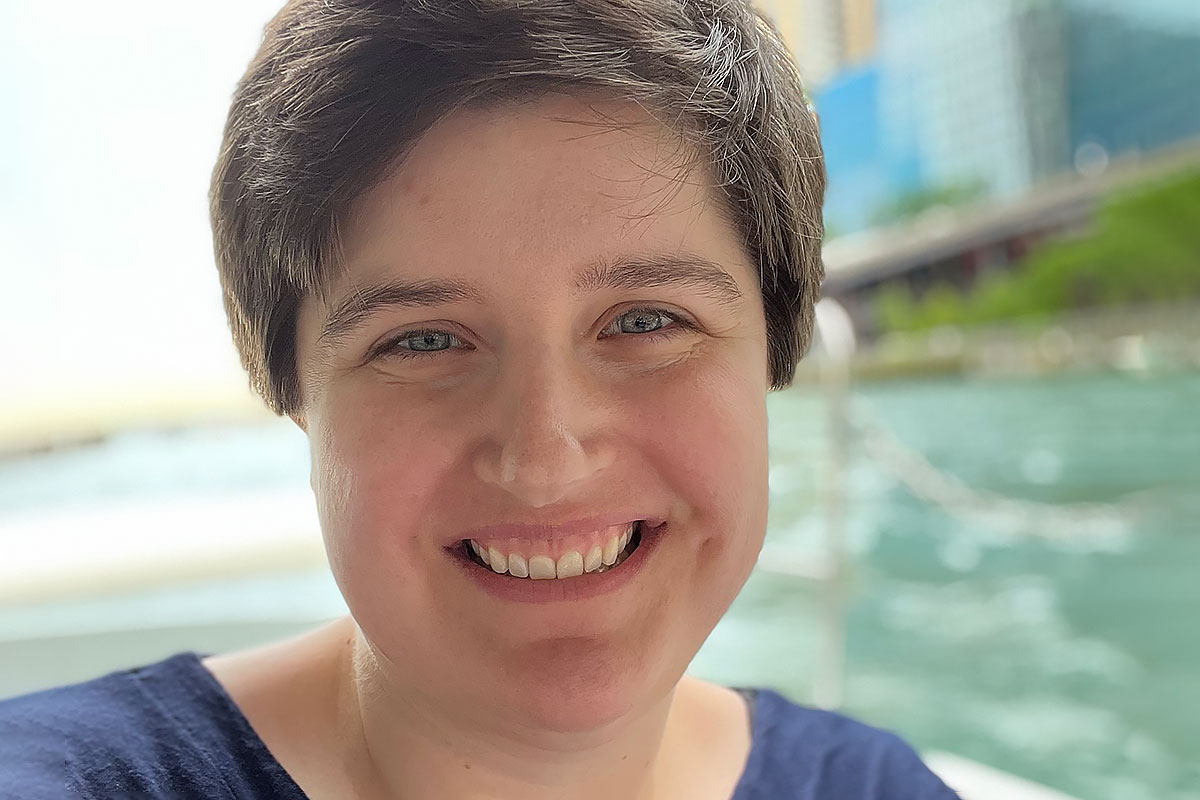
Similarly, Mora wondered if or when UM officials will make a statement regarding the TEAM Clinic.
“It forces you to ask ‘Where’s the university leadership?’ Because, you know, crickets, and … it’s not because deans or the chancellor are on vacation,” Mora said. “They’re still very aware of what’s going on. It’s just put on the back burner for them. It’s one of those things where it’s like ‘OK, we are taking an activist approach with this organization (OUTGrads). Take note. Note who was silent,’” Mora said.
Haas said UMMC closing down the TEAM Clinic was “a bad look” for the university.
“The main focus, I think, should be on the patients, right, the people that are actually needing these services,” Haas said. “… Regardless of political pressure and everything else, you have to make sure you take care of the patients first. That’s really your job.”
Favilla, Haas and Mora all asked why UMMC would close the TEAM Clinic based on lawmakers’ scrutiny of gender-affirming care for minors when the clinic didn’t even accept minors as patients in its last nine months of operation.
Haas said if UMMC was trying to “quietly roll away the LGBT” focus of the clinic, Dr. Mills wouldn’t have gone to Mississippi Today saying “There’s a fire, there’s a fire.”
“That’s where I’m confused by how this was dealt with, how this was communicated,” Haas said. “And I would hope that there would’ve been a plan in place to ensure that these patients were not left in the lurch of all this.”
Dr. LouAnn Woodward is the vice chancellor for health affairs and the dean of the UMMC School of Medicine. On June 6, protestors gathered across the street from UMMC to urge her to inform patients of the clinic’s closure and list medical providers who could serve them moving forward.
‘Build The Community Up’
Despite UMMC closing the TEAM Clinic, two other LGBTQ+ specialty clinics are available for Mississippians seeking gender-affirming care, including Spectrum: The Other Clinic in Hattiesburg and Open Arms in Jackson.
Stacie Pace and Lee Pace opened Spectrum in 2019 as the first clinic to provide health care specifically targeted at the Mississippi transgender community. Stacie Pace said she does not understand why UMMC would choose to close the TEAM Clinic.
“Just seeing the constant barrages of just ignorance being put forth, you know, the thought that such a large and prestigious institution that has its own freaking medical school could be pressured into not seeing a group of people is just insane,” Stacie Pace said.
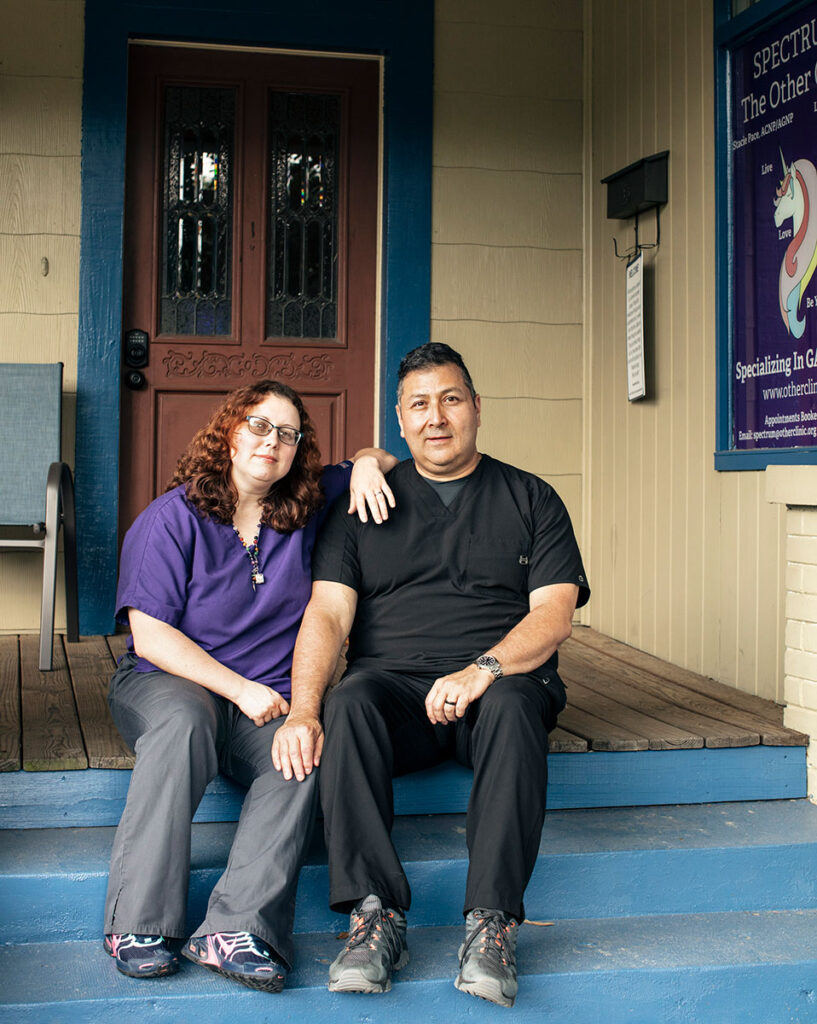
The couple said they wanted to “tell queer folks we have open space if they need to come to us.”
“We’re here. We prepared for this a long time ago, and there are multiple organizations here in the state ready and willing to help them as they can,” Stacie Pace said, mentioning the American Civil Liberties Union and the Human Rights Campaign.
Spectrum doesn’t accept outside funding or insurance, which the Paces felt was necessary to avoid “outside pressure.”
While their patients are concerned about the TEAM Clinic’s shutdown, the couple said they assure them that Spectrum will continue to provide health care for them.
“My patients are freaking out because they think ‘Now that the University of Mississippi has abandoned us, what’s going to happen to us?’ … It does affect them,” Lee Pace said. “It kills them psychologically, and it’s just heart-rendering that the flagship institution of Mississippi would turn their back on the transgender population.”
Lee Pace said the couple has received such a barrage of death threats and hate mail that they were fearful of speaking to the media and receiving additional negative attention from the public.
“But damn, it is a rough, rough life,” Lee Pace said. “So, we try to build ourselves up and we try to build our patients up, build the community up, so a lot of it is trying not to focus on the negative.”
Favilla and Mora said lawmakers need to understand that LGBTQ+ people have always existed in Mississippi and will continue to live in the state.
“And we like it here,” native New Yorker Favilla added. “I know I love it here. We’re not from here, but it feels like home right now, and I think that’s why it hurts even more because it’s really easy to feel invested and connected in this place.”

